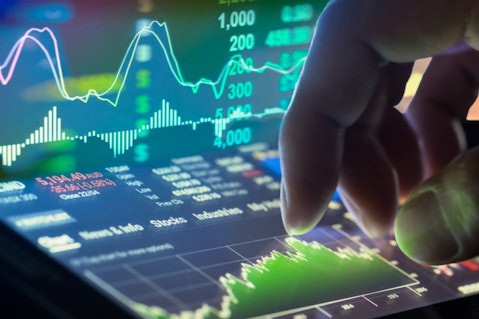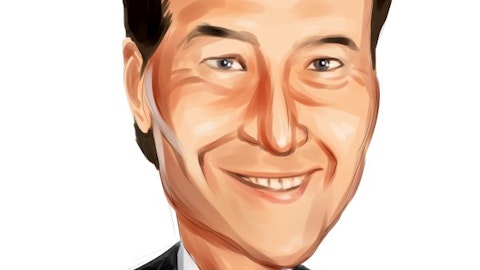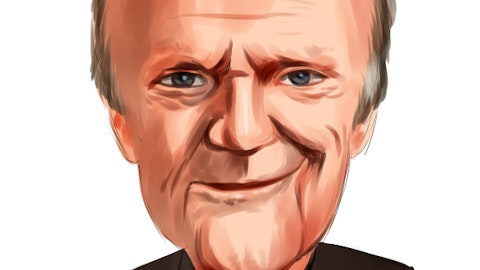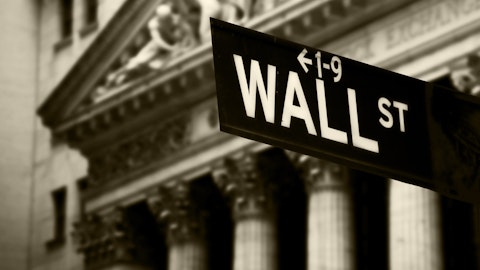If someone is looking for convincing arguments about the wildly publicized doom of the hedge fund business, they don’t need to look far beyond the 2017 list of the highest paid hedge fund managers compiled by Institutional Investors’ Alpha. According to the coveted magazine, 2016 was the year when the top-25 earning hedge fund managers on its list collectively earned less than what they had earned in any year since 2005. Even back in 2008, when we were experiencing the worst financial crisis in decades, the top-25 earning hedge fund managers as a group made $11.6 billion, which was more than the $11 billion that they made last year. For sure, these figures give us an idea of the trouble the hedge fund industry as a whole has been facing in generating alpha, but do they paint the complete picture?
We believe they don’t. While it’s true that in the past few years several hedge funds have been shut down and some of the industry’s titans have made poor bets which have affected their performance, it’s also true that there are several lesser known hedge funds that have been consistently generating impressive returns all this time. Funds like John Petry’s Sessa Capital, whose investments in U.S-listed companies with a market cap of above $1 billion have delivered a humongous weighted average return of 205% in the past year, including 22% gains in 2017. Despite this spectacular performance, Sessa Capital or funds like Sarissa Capital Management and 683 Capital Partners, whose stock picks have generated 200% and 97% returns, respectively, in the last year, are rarely if ever mentioned in prestigious financial publications.
The reasons these funds don’t get their fair share of media coverage is quite simple. For one, they are small when compared to the multi-billion dollar funds run by hedge fund moguls. And secondly, they break the narrative that the big names in the financial media have been pushing over the past several months, which is that hedge funds are performing poorly, their business is doomed, and that investors can make better returns by investing in passive or index funds. Though we agree with some of those contentions, we don’t think that any of them are accurate. Yes, there are hedge funds that have been performing poorly, but there are also those that have outperformed the group by a wide margin. Moreover, a regular investor might do alright by investing his/her savings in a passive or index fund, but they’re also unlikely to generate impressive returns like they can by imitating the strategies of the best performing hedge funds at a cost that is lower than the absurdly high fees charged by some of these funds.

Phongphan/Shutterstock.com
That’s what we do at Insider Monkey and our flagship strategy has returned 44.2% since February 2016 vs. a 29.6% gain for the S&P 500 index ETF (SPY). Our most recent stock picks, which were disclosed to our subscribers in the middle of February, beat the market by 5 percentage points in the three months since, and we recently disclosed our latest stock picks. Our system is easy for investors to implement, with just a small batch of trades to be executed once per quarter. We are also offering a 14-day money-back guarantee as well as a large discount on our premium newsletters, so you can check out our latest picks risk-free and see if Insider Monkey’s small-cap strategy is right for your portfolio.
Now then, let’s get back to Sessa Capital and take a look at three of its prominent stock picks that have helped it generate those stellar returns, beginning on the next page.
Bristol-Myers Squibb Co (NYSE:BMY)
Sessa Capital initiated a position in Bristol-Myers Squibb Co (NYSE:BMY) during the final quarter of 2016 by purchasing call options underlying 1.95 million shares of the company. The fund became even more bullish on the company during the first-quarter of this year, when it upped its call options stake by 136% to underlie 4.62 million shares. At the end of the first-quarter, this position alone accounted for almost 40% of the value of the fund’s 13F portfolio, being worth $251.44 million.
Shares of the New York-based pharma major took a big hit in August of last year after it revealed that a phase 3 trial of its immunotherapy drug Opdivo, which was meant to slow disease progression in previously untreated patients with lung cancer, had failed to achieve its primary endpoint. Following this revelation, several analysts downgraded Bristol-Myers Squibb Co (NYSE:BMY)’s stock over the following few days, which led it to slide further. However, the stock has been mostly range-bound since the beginning of last October and is currently trading down by 7.56% year-to-date.
Earlier this year, rumors were making the rounds on the Street that drug giant Pfizer Inc. (NYSE:PFE) could make a bid for Bristol-Myers. These rumors were partially fueled by a note published on March 26 by Credit Suisse analyst Vamil Divan highlighting the synergies and benefits to Pfizer if such a deal were to take place. However, after Pfizer CEO Ian Read indicated earlier this month that the company is not looking to make an acquisition in the near-term, those rumors have been put to rest for now. A day after Mr. Read made his statement on May 3, analysts at BMO Capital Markets downgraded BMY to ‘Underperform’ from ‘Market Perform’ while keeping their target price on it intact at $47.
Follow Bristol Myers Squibb Co (NYSE:BMY)
Follow Bristol Myers Squibb Co (NYSE:BMY)
Receive real-time insider trading and news alerts
PJT Partners Inc (NYSE:PJT)
Although Sessa Capital reduced its stake in PJT Partners Inc (NYSE:PJT) by 4,600 shares during the first-quarter, the company still remained its top stock pick at the end of that period, with the value of the holding amounting to $51.54 million. PJT Partners Inc (NYSE:PJT)’s stock is up by over 25% this year and has returned 36.58% since the end of the fourth-quarter of 2015, when the fund initiated its stake in the company.
PJT Partners became a separate publicly traded entity in October 2015 after the Blackstone Group LP (NYSE:BX) spun-off its financial and strategic advisory services and fund placement businesses. Since its existence as a separate company, it has been headed by veteran investment banker Paul J. Taubman, who according to the Bloomberg Pay Index, was the highest paid Wall Street executive in 2015 with annual compensation of $164 million. For its most recent quarter, the niche investment bank reported EPS of $0.38 on revenue of $121 million, beating analysts’ consensus estimates by $0.08 and $16 million, respectively. On May 11, analysts at Bank of America upgraded the stock to ‘Buy’ from ‘Neutral’ and also upped their price target on it to $45 from $39, suggesting potential upside of 15.85%.
Follow Apple Inc. (NASDAQ:AAPL)
Follow Apple Inc. (NASDAQ:AAPL)
Receive real-time insider trading and news alerts
We’ll check out another favored stock of high-flying Sessa Capital on the final page of this article.
Dell Technologies Inc (NYSE:DVMT)
Dell Technologies Inc (NYSE:DVMT) has been a major winner for Sessa Capital’s portfolio this year. The fund initiated its stake in the newly formed company during the final quarter of 2016 and didn’t make any changes to it during the first-quarter of this year. Regardless, the value of its stake in the company jumped to $37.23 million from $31.94 million during the first-quarter, owing to a rally in Dell Technologies Inc (NYSE:DVMT)’s stock, which is currently trading up by 20% year-to-date.
Dell Technologies Inc (NYSE:DVMT) came into existence after Dell, Inc. completed its acquisition of EMC in September of last year. When the Dell-EMC merger was announced, analysts had expected the deal to be complicated because of EMC’s majority interest in publicly traded company VMware (NYSE:VMW). In order to simplify the transaction, Dell announced that shareholders of EMC would receive $24.05 in cash and 0.111 shares of a newly created tracking stock for each share of EMC that they tendered. Dell Technologies represents this tracking stock. Since it started trading last September, the stock is up by 31%. During its most recent quarterly results, Dell Technologies revealed that it has paid back $7 billion in debt and bought $824 million of Class V stock since the closing of the EMC deal.
Follow Dell Technologies Inc. (NYSE:DELL)
Follow Dell Technologies Inc. (NYSE:DELL)
Receive real-time insider trading and news alerts
Disclosure: None





